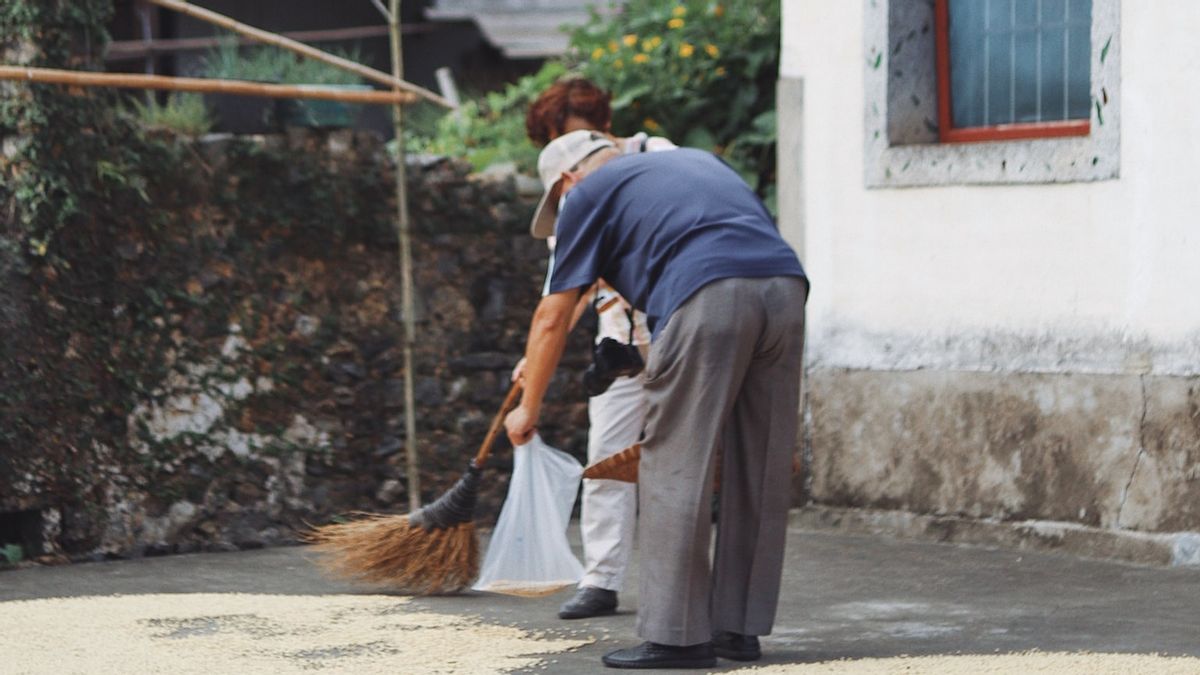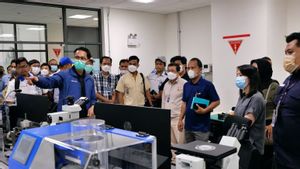The rise of cases of violence against Indonesian Migrant Workers (PMI), especially Domestic Assistants (PRT), is like an iceberg case. Deputy Chairman of the Legislation Body (Baleg) of the Indonesian House of Representatives, Willy Aditya, assessed that the Household Workers Protection Bill (RUU PPRT) could increase protection for PMIs.
"The PPRT Bill can increase PMI protection in the domestic workers sector because we have special laws," said Willy, Friday, May 5.
As is known, more and more cases of violence against PMI have occurred. Recently, PMI from Banyuwani, East Java became a victim of persecution to exploitation in Malaysia by its employer.
The victim's body was doused with hot water, ironed and his eyes bruised due to being hit. Sadly, again, the PMI did not get the promised wages while working.
The fate of Dede Asiah Awing Omo from Karawang Regency is not much different. He left for Turkey but instead was sold to Syria by his agent of distributor to be made a slave. His very difficult work made him sick and hoped to be sent back to the country.
Then two PMIs from South Sulawesi named Andi Halimah and Arsi were reported to have received inhuman treatment from their employers in Saudi Arabia. Willy said that there were many cases of violence against PMI that were difficult to overcome considering the limited regulations.
"So far, we have been the subject of ridicule from countries that have problems because even domestic workers do not have a law, so why should they force them (the resolution of PMI problems in the domestic workers sector)," he said.
Willy emphasized the importance of ratifying the PPRT Bill so that domestic workers get rigid legal protection. The PPRT Bill itself was passed as the DPR Initiative Bill last March.
SEE ALSO:
Currently, the DPR is waiting for a problem inventory list (DIM) from the Government, to be discussed together. Prior to further discussion, harmonization will also be carried out with a number of laws and regulations, including related to licensing of domestic property distribution agencies, central and regional government authorities, social security, and punishment/sanctions.
"The government has stated that it will send DIM at the opening of the DPR session. Hopefully the process will run quickly," said Willy.
The legislator from the East Java XI electoral district also said that the preparation of the PPRT Bill prioritizes cultural values. That way, said Willy, no one feels disadvantaged, be it job providers, employers and household workers.
The PPRT Bill is expected to be a bridge to guarantee domestic workers in Indonesia. However, there is already a Minister of Manpower Regulation that regulates the protection of domestic workers, but needs to be strengthened by the law," he explained.
According to Willy, the PPRT Bill is here to be able to provide justice to workers who work in the domestic sector and provide guarantees of legal protection to domestic workers. Because PRT often experiences discrimination because it is not considered a worker.
The important points in the PPRT Bill include the recognition of domestic workers as workers, protection and balance of relations between employers and domestic workers, category arrangements, scope of work, as well as work conditions and conditions. Then regarding the rights and obligations as well as sanctions for domestic workers and employers, rights and obligations for education or training for domestic workers, and the Elimination of child-age domestic workers.
The PPRT Bill also regulates the conflict resolution between PRT and the giver of deliberation and mediation, the right for domestic workers to join the union, and regulates the provisions for providing domestic worker services.
Willy also ensured that the discussion of the PPRT Bill would be carried out transparently and openly on input from various circles. The hope is that the PPRT Bill will become a comprehensive legal product because it has absorbed the aspirations of all parties.
"We have had quite intense dialogues several times with various community representatives, including from the household workers group themselves. Substances do not experience many changes, so hopefully we can quickly knock into law," concluded Willy.
The English, Chinese, Japanese, Arabic, and French versions are automatically generated by the AI. So there may still be inaccuracies in translating, please always see Indonesian as our main language. (system supported by DigitalSiber.id)

















